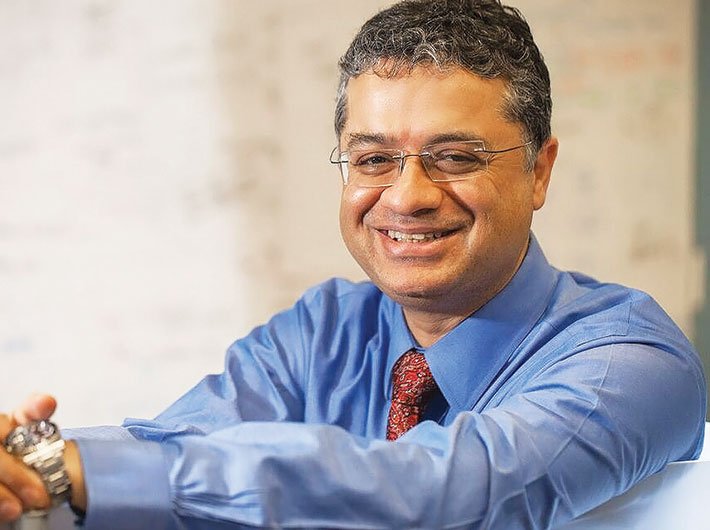Interview: Vishal Misra, associate professor, department of computer science, Columbia University
How do you define net neutrality?
Internet is a platform where (access) ISPs provide no competitive advantage to specific apps/services, either through pricing or quality of service (QoS). It is important to note that net neutrality is not about how you treat individual packets, but how you treat competition. Internet provides a platform where ideas can compete on an equal footing, and that is the essence of net neutrality.
How is it going to impact Digital India and Start Up India?
It is critical for the Startup India campaign. If we let the principles of net neutrality be compromised, then it makes it very difficult for entrepreneurs and startups to compete against established players, who can close off the market for upstarts by schemes like differentiated pricing and zero rating. If some sites are cheaper to use than others, then even if they are lower quality consumers will have a preference for them, making the job even harder for startups.
In a related issue, there is evidence from European countries that if you implement a ban on zero rating, that applies a downward pressure on telecom companies to reduce prices to increase usage and adoption. So, contrary to what proponents of zero rating would like us to believe, access is not increased by zero rating.
Critics say net neutrality is obsolete and a utopia. They demand for greater flexibility for the TSP/ISP for network management.
I would say that is misdirection. Reasonable network management is fine as long as it does not benefit or impact specific players. For instance, if you prioritise all voice over IP traffic (including Whatsapp, Skype, telcos own VoIP), then that is fine. But if you prioritise only the telcos VoIP offering or only WhatsApp, then you are hurting competition in the VoIP sector/service. If the telcos talk about pricing flexibility, that is just another way of them saying that they want to extract revenue out of their ability/position to distort the market in favor of certain players. Since they have that capability, being the last mile provider, they want to monetise that ability. Net neutrality says they should not be allowed to do that. Telco revenues seem very healthy from all the earnings reports, so I don’t believe their arguments.
Telcos say zero rating gives internet access to large unconnected population and the revenue they earn is further invested in building network. Your view?
If the telcos are truly interested in connecting the unconnected population, then they can give limited time access for the entire internet to them, rather than market distorting walled gardens like Free Basics or Airtel Zero.
Do we have any study to show whether first time users prefer accessing zero rated websites versus full internet?
It is basic economic theory, and zero rated sites get a price advantage. There are studies that show customers stay within the world of zero rated sites and never venture outside or are aware of the full internet.
What model do you suggest for India or any other developing country (where a large section of population doesn’t have access to internet) from the perspective of digital equality and net neutrality?
Access is important. There are many ways of increasing access without giving up on the principles of net neutrality. We can have a limited time access to the full internet. Or bandwidth limited access to the full internet (I think Aircel is experimenting with that). We can have ad-supported free access. Google is talking about Wi-Fi hotspots (starting with railway stations) that give access to the entire internet.
What is your argument against Free Basics?
That it creates a walled garden controlled by a corporation, a corporation that I might add has a history of being non-transparent with their motives. The walled garden distorts the market and is not good for the ecosystem, is inconsistent with the way the internet has evolved.
There are platforms like mCent and Gigato which reimburse data fee to users accessing partnering apps. Do they violate net neutrality?
I think it is a gray area. On the surface it seems to be just like Free Basics, however Gigato is making no pretense that what they are doing is philanthropy of increasing access. It still distorts the market in favor of the partners of Gigato but since it is an app and not the ISP, it is ok at least under the definition of net neutrality I have proposed. As Gigato reimburses the users in megabytes users can now venture out of the walled garden.
What are the other concerns that you have related to neutrality?
All the debate so far has been about mobile ISPs. As we move forward, wired broadband is going to become important. We need to make sure that there is enough competition in the wired broadband space, and is not going to get dominated by a single player. This story is being played out in the US, and it is important that India avoids the pitfalls. If needed, the government should step in and lay out the last mile infrastructure to ensure that the wired broadband space remains competitive. A monopoly ISP can control the quality and price at which services can be accessed and that is dangerous. Currently, JIO is aggressively laying out fiber and I fear they might emerge as the monopoly.
(The interview appears in the January 01-15, 2016 issue)

